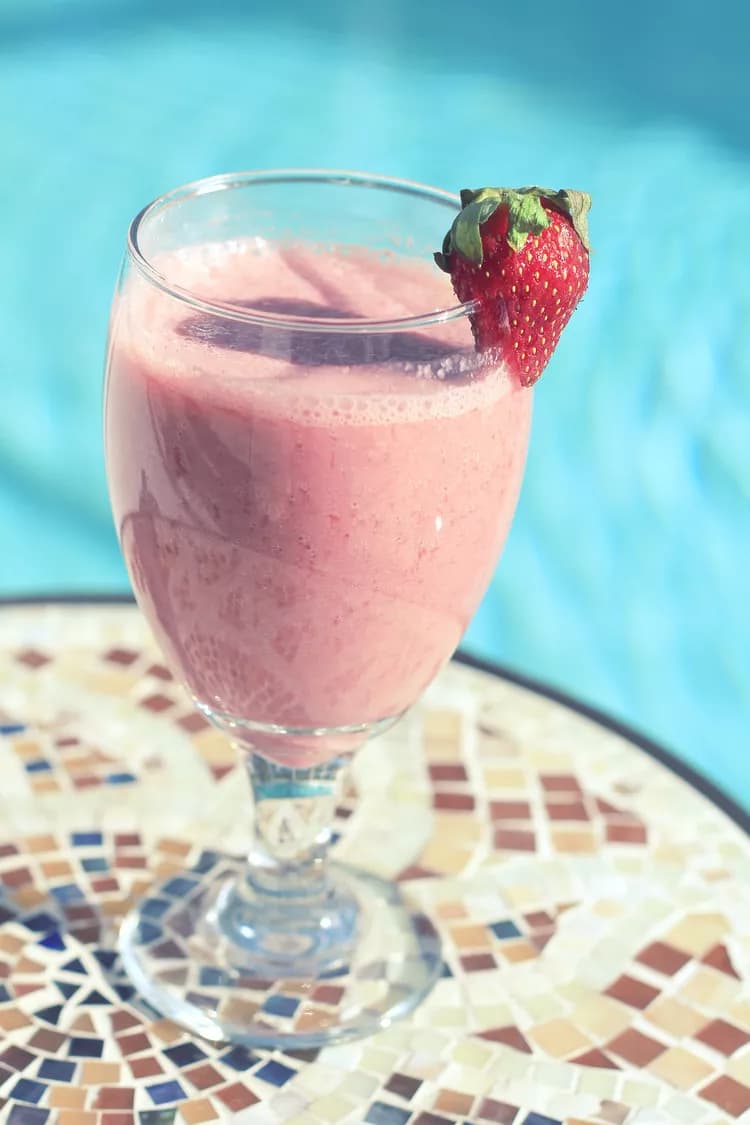Juicing is the process of extracting juice from fruits and vegetables. There are different methods of removing the juice: squeezing by hand, by using a blender, juicer, etc. Juices are sometimes consumed as the main source of nutrients in weight loss diets. However, the American Cancer Society does not promote juicing as a healthier alternative to whole foods. There are conflicting viewpoints in the debate over whether juicing is good or bad for your health.
It is not necessary to make juicing the focal point of a diet; however, it can help boost the nutrient intake in a balanced diet. Extracting the juice and pulp from fruits and vegetables respectively, can considerably reduce the fiber content and also affect the antioxidant activity. A study published in the Journal of Preventive Nutrition and Food Science in 2014 found that the antioxidant and phytochemical activity of fruits, such as apples and pears, were significantly reduced by the method of juice extraction, meaning that there were less healthful compounds present. Blending the fruits and vegetables rather than extracting the juice can be more beneficial because more fiber and antioxidants are retained by this method.
A review article published in the journal Advances in Nutrition in 2015 suggests that consumption of 100% fruit juice is associated with a number of health benefits, as the nutritional value of the whole fruit can be retained in the juice except for vitamin C and fiber content. The consumption of whole fruits, along with 100% fruit or vegetable juice, can improve the nutrient density of the diet without an increase in calories.
Alternatively, drinking about 12 ounces of fruit juice daily has been shown to account for short stature and obesity in children. However, based on evidence from the Academy of Nutrition and Dietetics, US Dietary Guidelines Advisory Committee, and the Australian Dietary Guidelines, it is concluded that 100% fruit juice intake is not associated with weight gain or obesity in children if energy intake was adjusted based on gender, age, and ethnicity. A study published in Archives of Pediatric and Adolescent Medicine in 2008 confirmed the finding that the consumption of 100% fruit juice is not associated with obesity in children between two and eleven years old. The study also stated that the consumption of 100% fruit juice improves the nutrient intake and overall quality of the diet.
Juicing is associated with health benefits such as weight loss and the reduced risk of heart disease. It has been suggested that consumption of juice has cancer-fighting properties and could even help an individual eliminate toxins from the body.
There is no significant scientific evidence that juicing is healthier than eating whole fruits, and it has been observed that juicing considerably alters the nutrient content such as lowering fiber content.
To summarize, the following tips (from various sources) might help a person to derive maximum benefits:
- Blend the fruits and vegetables together and have it in the form a smoothie or blended juice, as this method helps to retain the pulp and some amount of fiber.
- Juicing can be a good way of adding a variety of fruits and vegetables to the diet. It is important to use fresh ingredients that are properly cleaned.
- Freshly prepared juice must be consumed as soon as it is prepared, as standing time may lead to the breakdown of certain phytonutrients that have immune-boosting properties (e.g., anti-carcinogenic, anti-inflammatory).
- The juicing method is helpful when people cannot consume solid foods.
- Juices could be made nutrient dense by adding proteins.
- Juicing should not be used as a means to meet the basic nutrition needs, but could be used as a method to help boost nutrient quality in combination with a healthy balanced diet.
- Fresh juices are recommended over commercially prepared and processed juices that may have added sugar and preservatives that are deemed harmful.
References:
Complementary and Alternative Medicine. Retrieved from http://www.cancer.org/treatment/treatmentsandsideeffects/complementaryandalternativemedicine/dietandnutrition/juicing
Pyo, Y.H., Jin, Y.J., & Hwang, J.Y. (2014). Comparison of the Effects of Blending and Juicing on the Phytochemicals Contents and Antioxidant Capacity of Typical Korean Kernal Fruit Juices. Prev Nutr Food Sci, 19(2), pp. 108-114. Retrieved from http://www.ncbi.nlm.nih.gov/pmc/articles/PMC4103735/
Clemens, R., Drewnowski, A., Ferruzzi, M.G., Toner, C.D., & Welland, D. (2015). Squeezing Fact from Fiction about 100% Fruit Juice. Advances in Nutrition, 6, pp. 236S-243S. Retrieved from http://advances.nutrition.org/content/6/2/236S.abstract?sid=8d5f67de-1cc2-4124-bebf-46b3d86f8c1d
https://www.oncologynutrition.org/erfc/hot-topics/should-i-be-juicing/ (does not open)
Nelson, J.K. (2014 Jan 30). Is Juicing Healtheir than Eating Whole Fruits or Vegetables. Retrieved from http://www.mayoclinic.org/healthy-living/nutrition-and-healthy-eating/expert-answers/juicing/faq-20058020
Nelson, J.K & Zeratsky, K. (2013 May 14). Safe Juicing and Blending. Retrieved from http://www.mayoclinic.org/healthy-living/nutrition-and-healthy-eating/expert-blog/safe-juicing/bgp-20056204
Dennison, B.A., Rockwell, H.L., & Baker, S.L. (1997). Excess fruit juice consumption by preschool-aged children is associated with short stature and obsesity. Pediatrics, 99(1), pp. 15-22. Retrieved from http://www.ncbi.nlm.nih.gov/pubmed/8989331
Nicklas, T.A., O’Neil, C.E., & Kleinman, R. (2008). Association between 100% juice consumption and nutrient intake and weight of children aged 2 to 11 years. Arch Pediatr Adolesc Med, 162(6), pp. 557-65. Retrieved from http://www.ncbi.nlm.nih.gov/pubmed/18524747
Related Articles
Test Your Knowledge
Asked by users
Related Centers
Related Specialties
Related Physicians
Related Procedures
Related Resources
Join DoveHubs
and connect with fellow professionals


0 Comments
Please log in to post a comment.